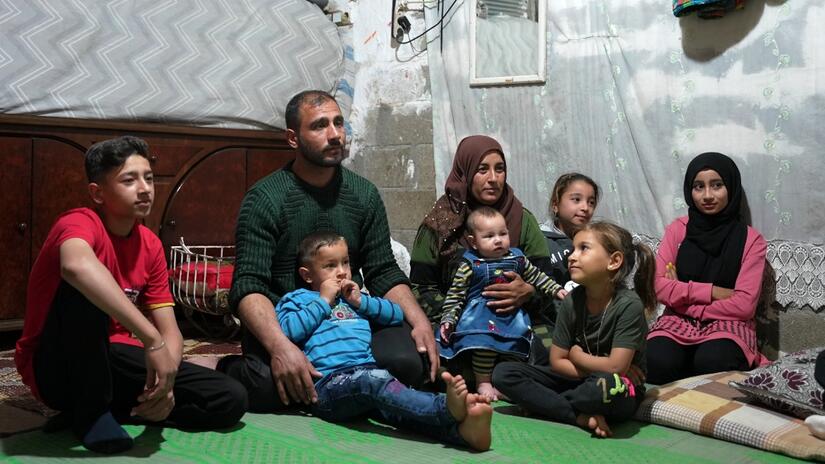On 6 February 2023, Türkiye was shaken by two massive earthquakes—the most significant seismic events the country has faced in the past century.
The earthquakes have left a lasting impact on the nation's southeast region and beyond, toppling buildings, disrupting people’s livelihoods, and leaving communities in distress.
For refugee communities living in Türkiye, the earthquakes came as yet another blow in their journey to find a peaceful and safe life.
Ahmad Al Saleh is a refugee from rural Hama, Syria. He and his family moved to Türkiye in 2015 due to the escalating conflict at home, settling in Antakya – just 100km away from the first earthquake’s epicentre.
“At 4:30 AM, we were sleeping with the kids when we suddenly felt the house shaking. Out of fear, we ran straight outside. It was raining and the weather was so cold. It wasn’t an option for us to go back in, so we slept outside for ten days," says Ahmad.
Thankfully, Ahmad’s wife and six young children weren’t physically harmed during the earthquakes. But other families living close by weren’t so lucky.
"Seeing all those survivors, children and women all around the place crying… I didn’t know who to help first. I saw people crying over their children, others over their wives and some others over their siblings. I saw buildings that were totally damaged. It was impossible to clean the rubble," explains Ahmad.
Before the earthquakes struck, Ahmad and his family had been receiving monthly cash assistance from the IFRC and Turkish Red Crescent through the EU-funded Emergency Social Safety Net (ESSN) programme. The ESSN provided refugees living in Türkiye with reliable support via prepaid debit cards—called 'KIZILAYKART' or 'Red Crescent card'—to help them cover their basic needs.
After the earthquakes, we worked with the Turkish Red Crescent to increase this cash support to affected communities—providing a lifeline for families like Ahmad's to cover essentials like rent, electricity, water bills, and groceries when their lives were turned upside down.
"Regarding work, it became a lot less now. I hope I keep receiving this assistance through the KIZILAYKART. Otherwise, it’s impossible for us to pay rent, especially since the prices have drastically increased now. There are no jobs, unfortunately. In agriculture, normally you work only for a couple of days, but now we’ve been left with nothing," says Ahmad.
Several months on from the earthquakes, the Turkish Red Crescent and IFRC remain firmly by the sides of communities across Türkiye. We continue to help people like Ahmad recover from the long-lasting impacts of the earthquakes—knowing from our many years of experience that cash assistance is one of the best ways to help people recover from disasters with freedom, independence and dignity.
--
More information:





